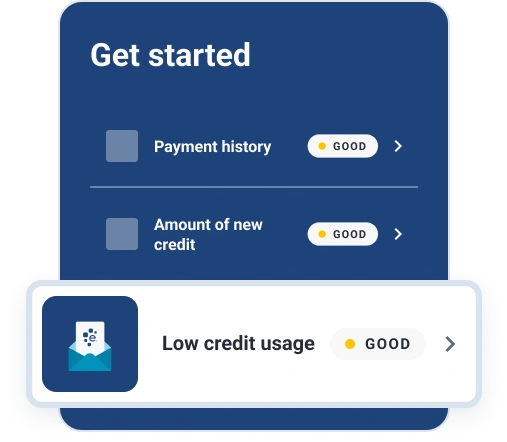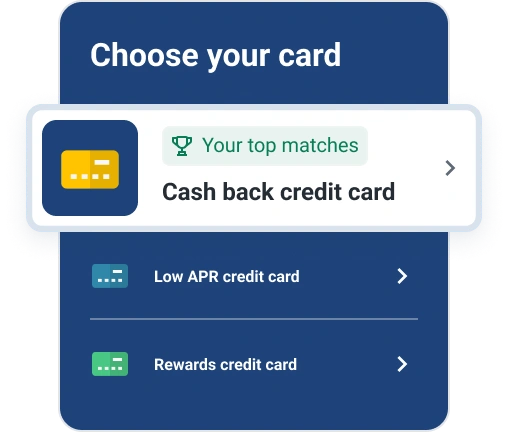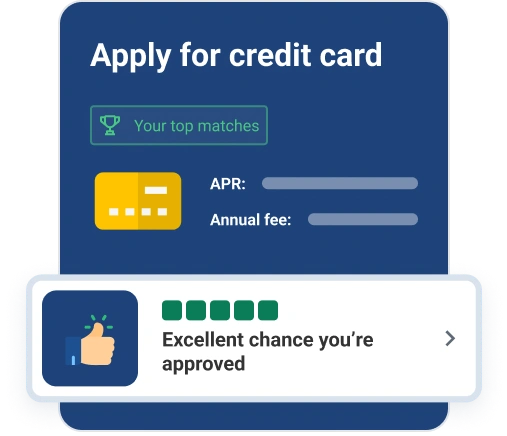At Experian, one of our priorities is consumer credit and finance education. This post may contain links and references to one or more of our partners, but we provide an objective view to help you make the best decisions. For more information, see our Editorial Policy.
In this article:
Credit cards are one of the most versatile personal finance tools available, but they sometimes get a bad rap. It's fair to say that bad spending habits, or an improper use of credit cards, can lead to problems with debt. When used wisely, however, they can help you build or improve credit, reap rewards and potentially better manage high-interest debt.
Here's a guide on how credit cards work and how to use them responsibly.
How Do Credit Cards Work?
A credit card is a line of credit that allows you to make purchases and pay them off over time. Credit cards are issued by banks, credit unions and other financial institutions to qualified applicants. When you apply for a card, the issuer will check your credit report, credit score, income and other factors to determine your eligibility. If approved, you'll be told your card's interest rate, credit limit and terms and fees.
Unlike loans, which provide a lump sum of money you pay back in installments, credit cards are forms of revolving credit. That means you borrow only what you need from a credit line, and can continue to do so again and again as you repay your balance. You only pay interest when you carry (or revolve) a balance to the next month. You can charge any amount up to the card's credit limit, though that doesn't mean you should (more on that below).
If you carry a balance, you'll owe a monthly minimum payment, typically 2% to 4% of the balance. Keep in mind that if you have a high balance and pay only the minimum, very little of that payment will go toward the principal balance, which can leave you in a cycle of debt. Making at least your minimum payment on time every month is a crucial part of protecting your credit score.
Compare top credit cards matched for you
How to Use a Credit Card Responsibly
Credit cards shouldn't be used as a way to live beyond your means. They're beneficial when you use them to build credit, pay off a large purchase over the short term or take advantage of rewards. Here are three key habits for responsible credit card use.
1. Keep a Low Balance
Just because you're given a credit limit of $10,000 doesn't mean you should use all of it. While it may seem counterintuitive given that you were approved for that amount, carrying a hefty balance can harm your credit and possibly make it difficult to pay down your debt.
A key component of your credit score is your credit utilization ratio, which is a calculation of how your credit card balances compare with your credit limits. Higher credit utilization, especially once your balance exceeds about 30% of your available credit, can hurt credit scores. People with the highest credit scores tend to have a credit utilization ratio under 10%.
2. Pay Your Bill on Time
One of the most crucial aspects to smart credit card usage is sending every payment on or before the due date. Payments are listed on your credit reports, and while on-time payments can help improve your credit, payments that are 30 days or more late will hurt them.
Some card issuers provide a grace period that gives you a few weeks to pay your statement's bill. But you can make extra payments at any time, and you can always pay more than the minimum. If you struggle to remember your due dates, set up automatic bill pay.
3. Try to Pay Your Bill in Full
While you have the option to pay only a small minimum amount each month, it's ideal to never carry a balance in the first place. When you pay off your balance in full each month, you avoid interest charges. You also help yourself live within your means, which is important for financial health and can help you avoid going into debt.
Interest on credit card compounds, which means interest charges are added to your total balance, so the next month, your interest is based on the new higher amount (including interest). If you fail to pay more than the minimum, you may be unable to catch up with the increasing balance caused by compounding interest—especially if you have a high balance and interest rate.
How to Maximize Credit Card Benefits
Here are some ways to make the most of perks offered by many credit cards.
- Fraud protection: Credit cards offer superior fraud protection to debit cards, making them ideal for online purchases and in cases of a data breach or identity theft. If someone uses your debit card, your checking account could be depleted and you may only get reimbursed up to a certain amount if you don't report it quickly enough. Conversely, if a thief steals your credit card number and makes purchases, it's on credit; they didn't siphon money from a bank account. Most credit card issuers offer zero liability fraud protection, meaning you owe nothing and they handle fraud.
- Rewards: Those with solid credit might qualify for rewards credit cards, which come in a few varieties. Cash back cards return a percentage of the money you charge as a rebate, usually 1% to 2% of each purchase and sometimes more for bonus categories. Point-based cards accrue points you can redeem for things such as airfare, products, services and gift cards. Depending on the rewards card, you may get additional perks, such as concierge services, waived checked baggage fees, free entry into airport lounges and extra insurance products. Keep in mind that the better the benefits, the more demanding the card's qualification requirements are likely to be. Rewards cards can be advantageous if you use them for planned purchases and pay them off right away.
- Introductory bonuses: Many rewards cards offer tempting welcome bonuses of cash, points or miles that you can earn after meeting the minimum spend. The bonus is often generous—sometimes enough for a one-way plane ticket—but it typically requires spending a minimum amount on the card within the first few months of opening the account. Don't go into debt just for the rewards, however. Instead, time your big purchases to coincide with a reward, and make sure you've saved up for it first and can pay it off right away.
- Intro 0% APR periods: Some credit card issuers incentivize applicants by offering a 0% intro APR period for a limited time, often 12 to 21 months. You can use these cards to transfer a high-interest debt balance or make a large purchase that you ideally pay off without owing interest. Read the fine print carefully, as some offers apply only to purchases or balance transfers, while some provide a 0% intro APR for both. Additionally, track when the regular APR kicks in so you don't accidentally end up with a large interest payment.
- Insurance and other financial perks: Even non-rewards credit cards often come with little-known benefits that can save you money and hassle. Depending on your card, you might have access to purchase protection for items you buy with the card, along with travel perks like auto rental collision damage waiver, roadside assistance, baggage delay insurance and various types of coverage for travel delays, interruptions, cancellations and accidents.
How Credit Cards Impact Your Credit
It's critical to know how your credit card habits impact your credit score. Below are the most important aspects of your credit score, and how credit cards play into them.
Payment History
With the FICO® Score☉ Θ, used by 90% of top lenders, your payment history is the single most important factor in calculating your credit score. Payment history counts for 35% of your FICO® Score, and payments made more than 30 days late are reported and hurt your credit.
While late or missed payments drag your score down, building a history of on-time payments can help boost your score over time. If you never use the account, consider putting a small monthly automatic payment on the card—like a utility bill or streaming service—then pay it off right away each month. This can help you quickly build up a solid payment history without being overly reliant on your credit card.
Credit Utilization Ratio
The next most important factor in your FICO® Score—accounting for 30% of it—is the amount you owe on your accounts. While this includes your total balances on loans and lines of credit (including credit cards), one of the most important aspects of this category is your credit utilization ratio.
Maintaining little or no debt is best, but if you must carry a balance, aim to use no more than 30% of your credit line at any time. Using more than 30% of available credit can do more significant damage your credit score, while keeping it under 10% can help your credit.
Length of Credit History
Following payment history and how much debt you carry, the third most influential factor in your credit score is the length of your credit history. This comprises 15% of your FICO® Score, and a longer credit history is better for scores.
The age of your oldest account is factored in, and depending on the type of credit scoring model, it may also look at the age of your newest account and the average age of all of your accounts. Accounts closed in good standing can remain on your credit report and continue to benefit it for up to 10 years. Just be aware that closing a credit card account means you have less available credit, which can cause an increase to your overall credit utilization ratio and potentially hurt your score.
New Credit and Credit Mix
Just as closing a long-standing account can ding your credit, so can applying for or opening too many new cards at once. A hard inquiry is run every time you apply for a credit card account, which may temporarily hurt your credit. Too many inquiries and accounts can indicate increased risk, which can hurt your scores. New credit accounts and inquiries account for 10% of your FICO® Score.
The different types of credit accounts you have also plays a small role in your score. Your "credit mix" accounts for 10% of your credit score and shows how you manage different types of credit accounts, including revolving accounts like credit cards as well as installment accounts, which include car loans, mortgages and student loans.
Track Your Progress
As you become a more experienced and savvy credit card user, your credit score may rise, opening up new opportunities. To track your score's progress over time, sign up for free credit monitoring with Experian. You'll be able to see how your behaviors impact your score for better or for worse, and you'll be able to catch fraud or identity theft much faster.
Learn More About Credit Cards
- Can You Transfer a Personal Loan to a Balance Transfer Card?
Save money on a personal loan by using a balance transfer credit card offer to pay it off early. Follow these tips to make sure your offer will work. - Can You Transfer Credit Limits Between Credit Cards?
If you have two credit cards with the same card issuer, you may be able to transfer some of your available credit from one card to another. - Is Credit Card Interest Compounded Daily?
Credit card interest is typically compounded daily, which means your credit card issuer charges interest to your account based on the average daily balance.




